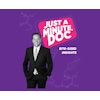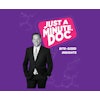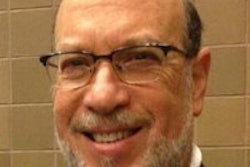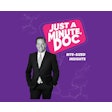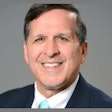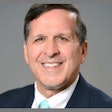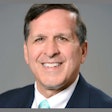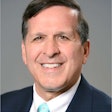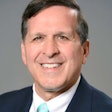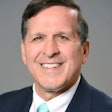
The mushrooming popularity of social media such as Facebook makes it an effective marketing tool, but experts warn dentists that sharing too much personal information can affect doctor/patient relationships in negative ways.
Dentists should use social networking sites such as Facebook and Twitter to let patients know what procedures they offer, answer questions, and let them know about new treatments and special offers, according to consultants. But, like all doctors, they should create separate business pages to maintain their privacy and avoid blurring the boundaries of their relationships with patients.
"The great thing about social media is you're able to spread your message very quickly," Jason Lipscomb, DDS, who writes a blog about social media and is the author of Social Media for Dentists, told DrBicuspid.com. "If you have something to say about your dental office, you have access to say it to a lot of people you didn't have access to before."
But Dr. Lipscomb, who has a general practice in Virginia, also urges caution.
"Dentists really need to be careful about who they're connecting with and what they share with patients," Dr. Lipscomb said. For example, he has received "friend" requests on Facebook from about 30 patients, including teenagers.
“The great thing about social media is you're able to spread your message very quickly.”
— Jason Lipscomb, DDS
"I tell them I appreciate their request, but I have a policy in my office that my staff and I don't accept personal friend requests on Facebook," he explained. "I say that it may blur the lines of professionalism if I become 'friends,' so most of them understand."
In particular, "friending" young patients should be avoided, Dr. Lipscomb said. "It looks very improper, especially to their parents who would wonder why their dentists would want to be friends," he noted. Care should also be taken with patients of the opposite sex, he added, because their boyfriends or girlfriends could get jealous.
Instead, he directs these patients to his business page, which is designed to be public, if they want to connect with him or his staff.
Sites such as Facebook present "unprecedented" opportunities for expanding dentists' reach, agreed Rita Zamora, a social media marketing consultant. But communication between patients and doctors on personal Facebook profiles could create ethical dilemmas, she noted.
"I think Facebook business pages are an ideal place for patients to stay in touch and interact with their dentist/dental team," she told DrBicuspid.com. Like Dr. Lipscomb, she advises dentists to invite their patients to join them on their professional pages.
To protect their privacy, dentists should market their practices in social media by being personable, but they should be careful not to reveal too many personal details, Zamora added. "There is a huge difference between being personable and revealing private information," she said.
Ethical questions
Medical ethics experts are beginning to turn their attention to this growing phenomenon as well. Most medical students have Facebook profiles, but the majority of them say they would decline "friend" requests from patients, according to a new study about Facebook activity and its impact on doctor/patient relationships (Journal of Medical Ethics, December 15, 2010).
Of the 202 residents and fellows at Rouen University Hospital who returned a questionnaire, 85% said they would automatically decline friend requests from patients, while 15% said they would decide on an individual basis. Some 48% believed that the doctor/patient relationship would be altered if patients discovered that their doctor had a Facebook account. But 76% considered the relationship would change only if the patient had open access to their doctor's profile, independent of its content.
Among the reasons for rejecting patients' friend requests, 98% of the respondents said it was to keep a distance from their patients, 98% said it was to protect personal information or photos, 88% said such interaction was unethical, and 92% said they suspected the patient wanted a romantic relationship.
Physicians should not engage in online interactions with patients unless it pertained to direct patient care, the study authors concluded. They also advised customizing privacy settings to protect personal information.
Some dentists have set up "staged" Facebook personal profiles for publicity purposes, but Zamora believes this is a bad idea.
"Facebook is a place to represent yourself honestly and authentically," she said. "If you are going to create a Facebook personal profile, then let it represent the authentic you -- this is what people expect and deserve within Facebook. If you aren't going to participate genuinely, why participate at all?"
Zamora also reminded dentists to be cautious about what information and photos they post on the Internet.
"Dentists are no different than any other professional or individual in that what you post could come back to haunt you," she said. "I think it's wise to 'think twice' before you post anything that might emotionally charge people. If dentists are posting within their personal account, and privacy settings are locked, it's their choice."
That said, Zamora believes that being candid and outspoken can have its advantages. "We live in a diverse world," she said. "Even if [a dentist's] account is open and they post controversially, it's their authentic self, and that will allow them to appeal to others who have the same opinions or conversely repel those who feel differently."
Domino effect
Dr. Lipscomb tries to keep everything politically correct on his personal page, "because you never know who's going to wind up seeing it," he said. "People who are friends may not have the same values and they could put offensive material on it, and it may look like something I'm involved with."
Zamora adds: "I've seen some dialogue on Twitter that I thought was entirely inappropriate; however, it was their choice to tweet it and therefore live with any related consequences."
On a positive note, posting about a new product or service can yield surprising results, Dr. Lipscomb said. When he tweeted about a new product that harvests stem cells from extracted teeth, a local news reporter noticed it and did a follow-up story. And when some local magazines published articles about how healthcare providers are using social media, they profiled Dr. Lipscomb as one of the most prolific dentists in the area utilizing these online tools.
"I get lots of free publicity," Dr. Lipscomb noted. "One day, several people recognized me on the street as the dentist known for his posts on Facebook and Twitter."
He was surprised that many young dentists have personal Facebook pages but didn't realize its marketing value. "Older dentists see it for what it's worth, so a lot of them are using it quite effectively because they understand marketing and that word of mouth is the most important marketing tactic for dental practices," Dr. Lipscomb said. "They realize that social media is just another form of word of mouth."
The biggest drawback to Facebook, according to Dr. Lipscomb, is how you manage your time on the popular site. "It's very easy to get sucked in and be on there all the time," he acknowledged.
Copyright © 2011 DrBicuspid.com
